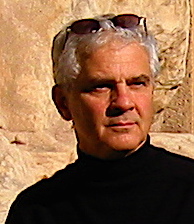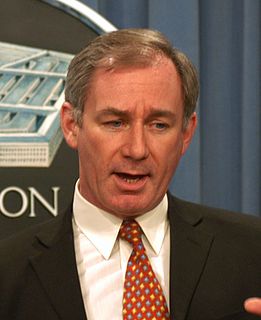A Quote by Mohamed ElBaradei
Nuclear proliferation is on the rise. Equipment, material and training were once largely inaccessible. Today, however, there is a sophisticated worldwide network that can deliver systems for producing material usable in weapons.
Related Quotes
The international community must do a better job of controlling the risks of nuclear proliferation. Sensitive parts of the nuclear fuel cycle - the production of new fuel, the processing of weapon-usable material, the disposal of spent fuel and radioactive waste - would be less vulnerable to proliferation if brought under multinational control.
What is the only provocation that could bring about the use of nuclear weapons? Nuclear weapons. What is the priority target for nuclear weapons? Nuclear weapons. What is the only established defense against nuclear weapons? Nuclear weapons. How do we prevent the use of nuclear weapons? By threatening to use nuclear weapons. And we can't get rid of nuclear weapons, because of nuclear weapons. The intransigence, it seems, is a function of the weapons themselves.
What we said publicly is that we know that Saddam Hussein has chemical weapons, he's used them; we know about his biological weapons programs; and in the nuclear equation, left to his own devices, with no fissile material, by the end of the decade, he'll have a nuclear weapon. But if fissile material is provided to Saddam Hussein, he'll have a nuclear weapon within a year, so I'd say the year is the outside timetable.
The worst part of what we heard Donald [trump] say has been about nuclear weapons. He has said repeatedly that he didn't care if other nations got nuclear weapons, Japan, South Korea, even Saudi Arabia. It has been the policy of the United States, Democrats and Republicans, to do everything we could to reduce the proliferation of nuclear weapons.
The court was unable to rule on all circumstances in which nuclear weapons might be used, and it said in view of the problems, the risks posed by nuclear weapons, and in view of the lack of certainty of the law in all circumstances, the best course is fulfilling the obligation of good faith negotiations of nuclear disarmament contained in the nuclear non-proliferation treaty.
Basically [United States and France] said "We will use nuclear weapons whenever it suits our purposes to do so." So this expansion of doctrines regarding possible use of nuclear weapons makes them more, you know, sort of, salient and important and so it's increasing the perceived political value of nuclear weapons and therefore causing or contributing to possible proliferation.
Every once and a while somebody writes a script, but even regardless of what age you are, most of the actors would all agree that it's all based upon material and the material has got to spark with you. It may be great material but you think it's great material for somebody else. Or it's great material and I'm perfect for it. So, you just have to make that judgment and if you feel in the mood to do it.
One of the greatest concerns that I had when I became President was the vast array of nuclear weapons in the arsenals of the United States and the Soviet Union and a few other countries, and also the great proliferation of conventional weapons, non-nuclear weapons, particularly as a tremendous burden on the economies of developing or very poor countries.
From the prophets' dreams of the time when nations would beat their swords into plowshares to today's aspirations of a nuclear-weapons-free world, we have sought to avoid armed conflict and not yield to despair in the search for universal peace. The nuclear threats from Iran, North Korea, and terrorists can only be overcome through international cooperation. We call upon Congressional leaders and those worldwide to join together to ensure the fulfillment of these long-overdue initiatives and the achievement of a safer future without nuclear weapons.



































